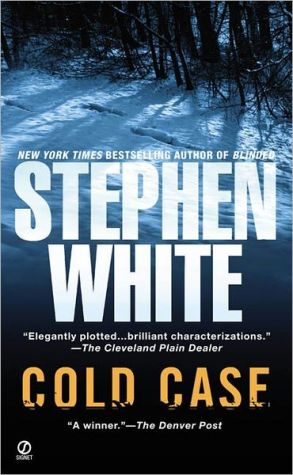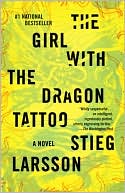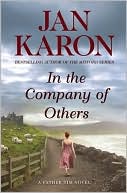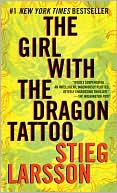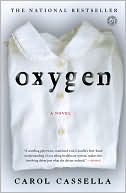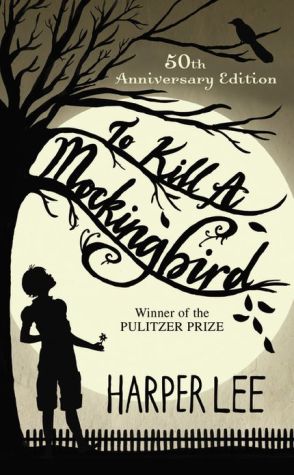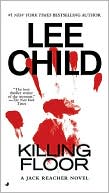Cold Case
It was a cold case…\ The unsolved double murder of two teenage girls. They vanished on a crisp autumn night more than decade ago. Their mutilated bodies were found the following spring beneath the melting snow of the Colorado Rockies. Now—at the request of their families—this cold case is being reopened. Clinical psychologist Alan Gregory has been asked to compile a psychological profile of the two girls. To probe their deepest secrets. To uncover the darkest truth. Even if it condemns the...
Search in google:
In this classic, early novel from the popular Alan Gregory series, a cold case gets hot as the crime-solving psychologist investigates a decade-old double homicide that will threaten the guilty-and endanger the innocent.Publishers WeeklyCrime-fighting psychologist Alan Gregory untangles a vexing unsolved case of double murder in the Colorado Rockies in this rousing page-turner by thriller specialist White. Gregory is drawn into his seventh fictional adventure by a private organization of criminal experts called Locard, named after a 19th-century French detective. Locard, which reopens decades-old murder cases at the request of survivors and their families, wants Gregory to help reexamine a puzzling case in which the partially mutilated bodies of two teenage girls--Tami Franklin and Mariko Hamamoto--were found during the spring snowmelt outside Boulder. Gregory is asked to assemble psychological profiles of the girls, their parents and others close to the case in hopes of dispelling the official line that the murders were the work of a drifter. As Gregory's side of the investigation progresses, the finger of guilt seems to point directly at Colorado congressman Raymond Welle, a psychologist who was treating both girls at the time of the killings. Welle also has a shadowy connection to another notorious murder--that of his wife, who was shot to death seven years earlier by one of his patients. Gregory, along with his wife, Lauren Crowder--now pregnant and increasingly weakened by her multiple sclerosis--quickly find themselves in the awkward position of accusing one of the state's most powerful politicians of not one, but two crimes. The delicate, bookish Gregory and his enfeebled wife make for unlikely crime stoppers, yet White (Manner of Death) drives the story through agile plotting and fine characterizations to a clever, surprise ending. While his description of the Colorado landscape and humdrum details of his protagonist's daily routines do little to enhance the plot, his fans will enjoy the action and the way the series's main characters evolve in this latest entry. (Jan.) Copyright 1999 Cahners Business Information.
\ \ \ \ Chapter One\ \ \ The phone call that summoned us to D.C. came on a Friday evening in April. I was busy playing Frisbee with some pizza dough and Lauren was slicing garlic so thin it was translucent. Her hands were less sticky than mine were so she answered the phone.\ A moment later, with real surprise in her tone, she said, "Hi, A. J. No, no, no. You're not interrupting anything. Really. We're just throwing some dinner together.... Yes, in our new kitchen, it's wonderful. It's good to hear from you.... We're doing fine, thanks. You?"\ I smiled. The only A. J. I knew was A. J. Simes, a retired FBI psychologist. The previous year she had been instrumental in helping me identify and track down someone who was eager to kill me. Before the adventure was over she had saved my life. Lauren and I had only heard from her once since she had left Colorado and returned to her home in Virginia.\ "You still in touch with Milt Custer, A. J.?" Lauren asked. Milt was also retired FBI, and had been A. J.'s colleague the previous fall.\ A. J.'s response to the Milt Custer inquiry took a while. Milt, a Chicago widower, had been sweet on A. J. during their sojourn together in Colorado. I fondly recalled his awkward flirting. But Lauren's next words yanked me back to the present.\ "You want our help with something? ... Both of us? ... Of course I'll listen. Should Alan get on an extension? Good, yes ... Hold on." Lauren covered the mouthpiece and said, "It's A. J. Simes. She wants our help with something. Why don't you get on the cordless and listen into what she has to say?"\ I grabbed the other phone from the front hallway and A. J. and I greeted each other. Immediately after the pleasantries she asked, "Have either of you ever heard of a man named Edmond Locard?"\ I said no. Lauren said she thought the name was familiar.\ "Well, have you ever heard of an organization called Locard? It is, of course, named after Edmond Locard. He, by the way, was a nineteenth-century French police detective."\ We both said no, though Lauren had begun nodding her head as though she was remembering something about him.\ A. J. sighed. "Does the name Vidocq ring any bells? An organization called the Vidocq Society?"\ "Yes," I replied. "I've read something about them. It's, um, a volunteer organization of law enforcement officers and—what?—forensic specialists and prosecutors who try to assist local police in solving old crimes. Murders and kidnappings mostly. They've been quite successful, haven't they?"\ "That's right, they have. Very good, Alan. Well, Locard is a group similar to the Vidocq Society and has similar goals, though a slightly, mmm, shall we say, different philosophy and approach. I am one of the founding members. We are not as well known as Vidocq, which is mostly by design. Our members are not as prominent. That, too, is partly by design. But as an organization we are very effective. The reason I'm calling is that we in Locard have just made a decision to consider involving ourselves with a case that involves a crime that occurred in Colorado over ten years back but that also has some intriguing contemporary Colorado connections. I suggested to our screening committee that I thought you could both be of some help in our efforts. You, Lauren, could advise us on the lay of the local prosecutorial landscape. And you, Alan, could help me with some aspects of the case that might involve your clinical skills. The screening committee has already looked—discreetly, I assure you—into your backgrounds and authorized me to invite you both to consider assisting us on the case. Should the case develop as we anticipate it will, you would each bring an important local perspective to our investigation."\ A. J. told us little more that evening. She did explain that our participation was purely voluntary, and that we would not be remunerated for our time or for our expenses except for extraordinary travel costs, which would need to be approved in advance by the director of Locard.\ We looked at each other and shrugged. Lauren told her that we would be happy to consider her request. A. J. explained that we would need to come to Washington, D.C., at least once and possibly twice or more but that the Colorado family that was imploring Locard to investigate the crime had agreed to provide transportation for the initial visit.\ "When would this be?" Lauren asked.\ "The first meeting is a week from tomorrow. You would need to be at Jefferson County Airport at six o'clock in the morning. That's close to your home, right? I'm told that it is."\ "Yes, it's close enough."\ "There will be a plane waiting for you there at a facility called ..." She hesitated and I heard papers ruffle. "... Executive Air. The family name is Franklin. You should be back in Colorado the same day if you're lucky. Midday Sunday at the latest. If you're required to stay over, someone will make sleeping arrangements."\ "And you'll be there, A. J.? At the meeting?" I asked.\ "Yes, definitely. And one last thing."\ We waited.\ "Please don't tell anyone we've talked. Discretion is important. Essential. Agreed?"\ "Yes."\ \ \ "She doesn't want us to tell Sam," I said, a few moments after we hung up the phone. Sam Purdy was a Boulder police detective and a good friend. A. J. had become acquainted with him the previous autumn, too.\ "I got that impression, too" Lauren agreed. "Any idea why?"\ I shook my head. "Secrecy is its own reason. Can you finish making the pizza? I want to check some of this out on the Internet."\ \ \ I sat down at the kitchen table fifteen minutes later. "There isn't much about Locard as a group. A little about Edmond Locard as an individual. But the Vidocq Society has its own Web page. Lot of heavy hitters are members. You know, CNBC types—the kind of people who had endless opinions about Monica Lewinsky. Some people who testified in the O. J. trial. Vidocq has a fancy meeting room in a town house in Philadelphia. There's some blurb on their Web page about `cuisine and crime.' Apparently, they have fancy lunches while they sit around and discuss old crimes. The Web page makes it sound like some kind of club. A regular crime-fighters' Rotary."\ Though Lauren was drinking water, she handed me a glass of red wine. "While you were on the computer I remembered where I'd heard his name before. Locard. He's the man responsible for what detectives and crime-scene specialists call Locard's Exchange Principle. It's the foundation for the science behind trace evidence. Locard's the one who theorized that when any two objects came in contact or stay in close proximity for an extended period, something, some material, either visible or microscopic, will always be exchanged between the two objects."\ I smiled." That's about all I learned on the Net, too. That and that Locard worked in Lyons. Can you believe we agreed to do this?"\ "Yeah, I can. I think it sounds fascinating. I'm more surprised that we were asked. Let's face it, Alan, our national reputation as crime fighters is, shall we say ... nonexistent. I suspect that A. J. has an agenda that we don't know about."\ "Do you think it will take up much of our time?"\ She shrugged. "I know a couple of people who have done this sort of thing before. My impression is that it's more of a consultation thing. I don't think it will be too bad. Anyway, we owe A. J. big-time."\ "Yes. We do owe A. J. big-time." I lifted the pizza to my mouth. "Gosh we make good pizza, don't we?"\ We were in.
\ From Barnes & NobleIn this, the eighth Alan Gregory thriller, the Colorado-based clinical psychologist and his wife, Boulder Assistant District Attorney Lauren Crowder, are asked to assist a private organization known as Locard. Comprised of former and current prosecutors, federal law enforcement agents, and forensic specialists, the group (named after the legendary 19th-century French detective Edmond Locard) specializes in providing assistance to local police in solving "cold cases," i. e., unsolved cases that have been open for an especially long time. \ In this instance, Locard is investigating the murder of teenagers Tamara Franklin and Mariko Hamamoto, two close friends who disappeared from their homes in Steamboat Springs, Colorado, one cold November evening in 1988. The girls' bodies were discovered a few months later when the springtime thaw melted the snowbank in which their killer had hidden their corpses. Because the bodies had been mutilated (Tami's body was found sans a hand, Mariko's was missing the toes of one foot), local police sought an opportunistic killer, either a serial killer or a drifter, an approach that proved unsuccessful.\ Asked to perform a "psychological autopsy," Gregory conducts interviews with several people connected to the case, including the girls' parents, siblings, and friends. His inquiries also bring him into contact with Mariko's psychologist, Dr. Raymond Welle. Welle has also known tragedy: Four years after the girls' disappearance, Welle's wife Gloria was apparently murdered by another of his patients, the severely depressed Brian Sample. The crime drew national headlines and propelled Welle into the public eye, first gaining him a syndicated talk show, then a Senate seat. Suspecting that Welle knows more about the case than he lets on, Gregory doggedly pursues the Senator.\ Gregory's odyssey into the past affects him in varying ways. Of course, there's the thrill of the hunt, the intellectual challenge, and the satisfaction of bringing a criminal to justice. But that's not all, as Gregory becomes involved on a very personal level. His many interviews bring home a hard fact to the psychologist, namely that human beings inflict great damage on each other every day. He's reminded that murder has a ripple effect, irrevocably changing the lives of both survivors and victims. Gregory's personal life is also impacted by the investigation, as he becomes the target of forces anxious to conceal the truth. Touchingly, his thoughts in moments of peril always turn to his pregnant wife, and how he now has even more to live for than before.\ If I had to choose one word to describe this novel, that word would be intimate, in the sense that the reader's involvement in the narrative increases as Gregory digs deeper in his search for the truth. Of course, White pays a lot of attention to Gregory and Lauren Crowder; after eight novels, they feel like old friends. But White also lavishes a great deal of attention on the rest of his cast -- supporting characters are given sufficient substance to keep them interesting, from Kimber Lister, the somewhat pompous, agoraphobic leader of Locard, to family friend A. J. Simes, a retired FBI psychologist who, like Crowder, suffers from multiple sclerosis.\ That's not to say that everything's perfect, however. For instance, the answer to the riddle Gregory faces is so complex that, once the perpetrators are revealed, it takes page upon page of exposition to explain their actions and motivations, causing one to wonder why they don't just shoot Gregory and be done with it. This is only a minor criticism, however, rendered inconsequential by the air of intimacy and immediacy White creates. Cold Case is an arresting, exciting piece of work, the perfect way to while away some cold winter nights.\ --Hank Wagner\ \ \ \ \ \ Publishers Weekly - Publisher's Weekly\ Crime-fighting psychologist Alan Gregory untangles a vexing unsolved case of double murder in the Colorado Rockies in this rousing page-turner by thriller specialist White. Gregory is drawn into his seventh fictional adventure by a private organization of criminal experts called Locard, named after a 19th-century French detective. Locard, which reopens decades-old murder cases at the request of survivors and their families, wants Gregory to help reexamine a puzzling case in which the partially mutilated bodies of two teenage girls--Tami Franklin and Mariko Hamamoto--were found during the spring snowmelt outside Boulder. Gregory is asked to assemble psychological profiles of the girls, their parents and others close to the case in hopes of dispelling the official line that the murders were the work of a drifter. As Gregory's side of the investigation progresses, the finger of guilt seems to point directly at Colorado congressman Raymond Welle, a psychologist who was treating both girls at the time of the killings. Welle also has a shadowy connection to another notorious murder--that of his wife, who was shot to death seven years earlier by one of his patients. Gregory, along with his wife, Lauren Crowder--now pregnant and increasingly weakened by her multiple sclerosis--quickly find themselves in the awkward position of accusing one of the state's most powerful politicians of not one, but two crimes. The delicate, bookish Gregory and his enfeebled wife make for unlikely crime stoppers, yet White (Manner of Death) drives the story through agile plotting and fine characterizations to a clever, surprise ending. While his description of the Colorado landscape and humdrum details of his protagonist's daily routines do little to enhance the plot, his fans will enjoy the action and the way the series's main characters evolve in this latest entry. (Jan.) Copyright 1999 Cahners Business Information.\ \ \ Library JournalEven volunteer work proves life-threatening for Boulder, CO, psychologist Alan Gregory in the eighth novel in this series by author-psychologist White. Both Gregory and his wife--prosecutor Lauren Crowder, who's pregnant with the couple's first child--are recruited to assist Locard, a volunteer group of law enforcement and forensic specialists who solve old crimes. The cold case at issue is the 1988 murder and mutilation of two teenaged girls in Colorado's Elk River valley. Sensitivity heightens as evidence centers around Congressman Raymond Welle, former psychologist and current Senate candidate, whose wife was murdered in 1992 in the same area. The harrowing conclusion finds Gregory in a terrifying forest of toppled trees and at the wrong end of one gun after another. Once again, White spins a suspenseful tale involving fascinating characters and leaves some questions to be answered the next time around. A first-rate addition to an increasingly popular series.--Michele Leber, Fairfax Cty. P.L., VA Copyright 1999 Cahners Business Information.\ \ \ \ \ School Library JournalYA-A long-unsolved murder case is referred to as a cold case, as is true of the murders of teens Mariko and Tami, found mutilated and buried in the snow near Steamboat Springs a decade ago. The investigative group known as Locard, composed of nationally known crime experts, agrees to open this case and calls on psychologist Dr. Alan Gregory and his pregnant, attorney wife for local help. Asked to develop profiles of the teens, Dr. Gregory sees his responsibilities widen as more killings occur and the cast of suspects increases. The methodical, detailed development of the story illustrates the often-ponderous routine of investigation and contributes to increasing tension. There's a rogue's gallery of participants-all brought to life with robust descriptions-from the almost-slimy, talkative, widowed congressman and the young, too-cool, golf-star brother of one of the victims to an irreverent, carping reporter and the agoraphobic head of Locard who leaves his home for this case. The resolution of the murders follows Gregory's terrifying trek through the Blowdown, a part of the forest where a powerful storm upended trees and left them scattered in precarious piles that could fall at the flutter of a bat. Wonderfully clever twists; secrets kept from friends, family, and coworkers; illustrative writing; and the statuesque Colorado Rockies add up to a "gotta-read" thriller.-Pam Spencer, Young Adult Literature Specialist, Virginia Beach, VA Copyright 2000 Cahners Business Information.\|\ \
